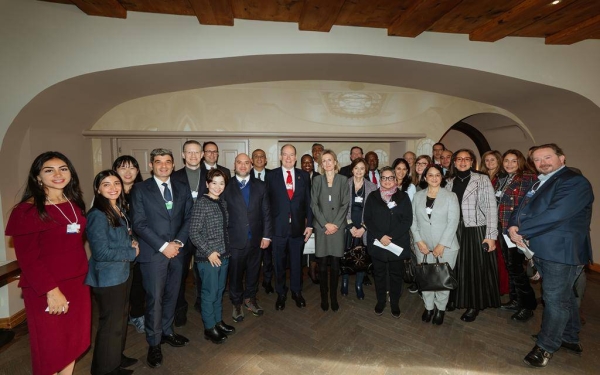
The arrest of an Indian climate activist by Egyptian security forces has renewed alarm about the regime’s dire human rights record as it prepares to host the Cop27 UN climate summit.
Ajit Rajagopal, an architect and activist from Kerala in south India, was arrested on Sunday afternoon shortly after setting off on an eight-day walk from Cairo to Sharm el-Sheikh as part of a global campaign to raise awareness about the climate crisis.
The arrest was described as “illegal” by a local human rights group who reported that at least 67 people had been arrested in Cairo and other cities in recent days as authorities try to quell any planned protests.
Rajagopal, who was walking alone holding a white paper sign calling for climate justice at Cop27, was detained at a security checkpoint, apparently for not having obtained prior authorization to protest.
He managed to call an Egyptian friend, Makarios Lahzy, a human rights lawyer, before being transferred to a police station where he was held incommunicado for 27 hours. Lahzy, who went looking for Rajagopal, was also arrested, reportedly for not having told police about the Indian activist’s intentions and held for more than 24 hours.
News of their arrest got out only because Lahzy happened to be on the phone with a relative when Rajagopal called asking for help. Lahzy’s relatives raised the alarm after they were unable to reach him, which led to an outpouring of alerts on social media.
The Egyptian Commission for Rights and Freedoms (ECRF), one of the few independent human rights groups still operating in the country, condemned the arrests, and said it was a clear sign that the regime was unwilling to tolerate even the most basic form of protest.
“Why did the Egyptian government request to host the climate summit, when the security restrictions will obstruct the simplest movements and manifestations of protest against the environmental crisis,” the ECRF said in a statement.
The pair were released on Monday afternoon, but their detention highlights the daily repression and surveillance faced by ordinary Egyptians as the global community prepares to descend on Sharm el-Sheikh this weekend.
About 60,000 political prisoners including human rights and environmental activists like Alaa Abd El Fateh have been locked up on bogus charges and tortured in the past decade. El Fateh, who has been on hunger strike for seven months, will stop drinking water on Sunday when the talks officially open to highlight injustice.
The right to protest and free speech have been eroded since the Arab spring, with virtually no safe space left for independent media, human rights advocates, political activists or environmentalists to operate.
In the run-up to Cop27, Egyptian authorities have made it clear that protests will only be permitted in a purpose-built area away from the conference centre where world leaders will make life-and-death decisions on climate action.
Rajagopal was arrested amid reports that security forces have stepped up checkpoints, phone searches and arrests in Cairo and other cities in order to crush any protests that could potentially embarrass the Abdel Fattah el-Sisi regime during Cop27.
“This shows how Egypt deals with public activism and is indicative of the level of repression in the country: any public action can lead to arrest. Egypt should release all those held for peaceful protests and lift restrictions on civil society groups. Progress on climate needs more people in the street, not less,” said Richard Pearshouse, environment director at Human Rights Watch.
Although Rajagopal and Lahzy were shaken but physically unharmed, the regime’s zero-tolerance policy to dissent appears undeterred despite the world’s eyes firmly on the country.
“This shows that repression is part of the daily routine for Egyptian security forces which operate with complete impunity, and that people are not even allowed to walk to raise concerns about climate change,” said Mina Thabet, an exiled human rights expert who was held in solitary confinement in 2016 on false charges including belonging to a terrorist group and conspiring to overthrow the government.
Thabet, Pen International’s Middle East and North Africa coordinator, added: “The regime wants to use the summit to greenwash its grim human rights record, but western countries must take a stance now. We cannot separate climate talks from human rights.”
Reuters reported on Tuesday that witnesses had described an increase in spot controls in which plainclothes security officers check pedestrians’ mobile phones and social media accounts.
The interior ministry did not respond to calls and messages about the arrests, Reuters reported, adding there was no immediate response to an emailed request for comment to the Cop27 presidency.












